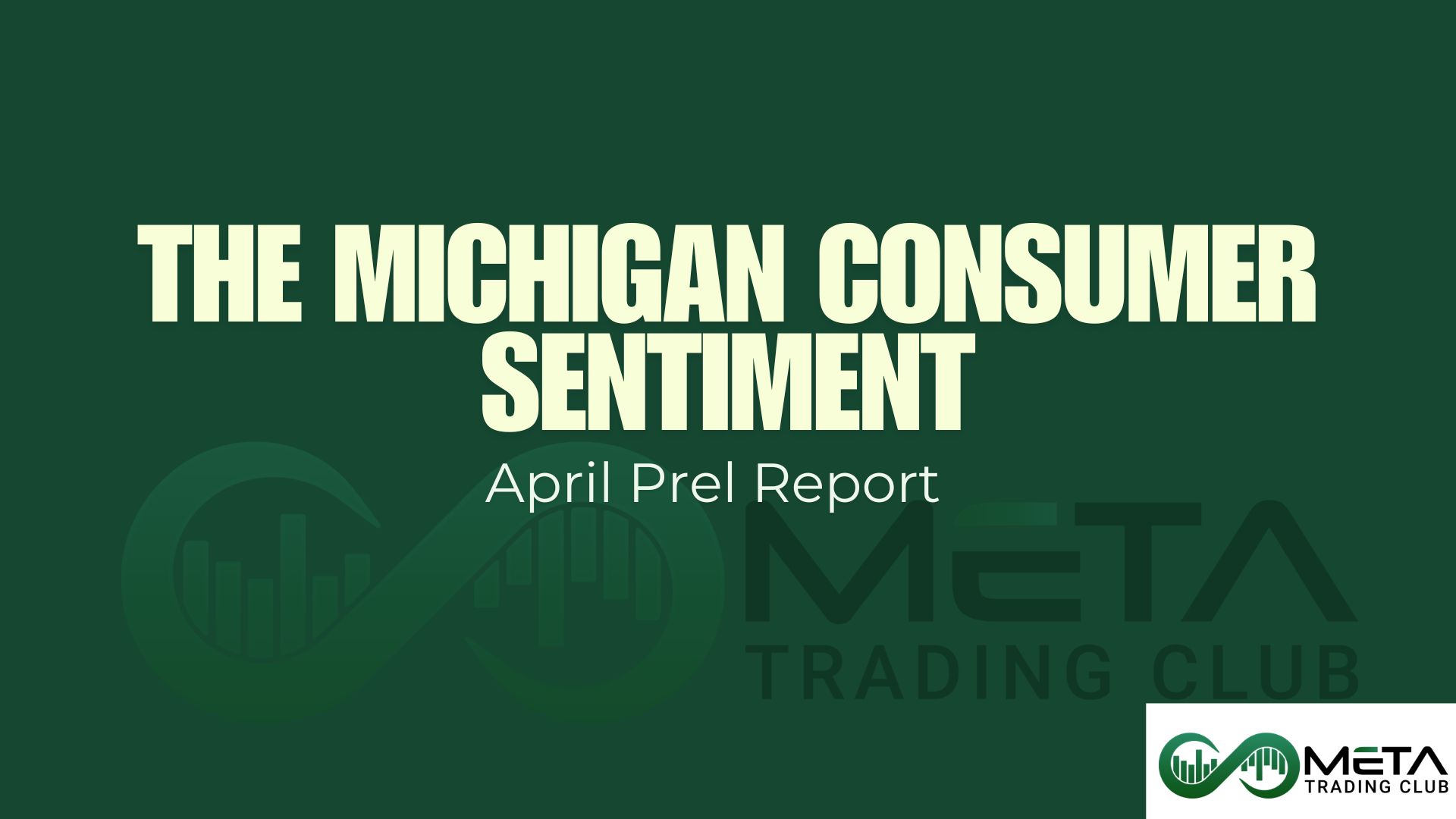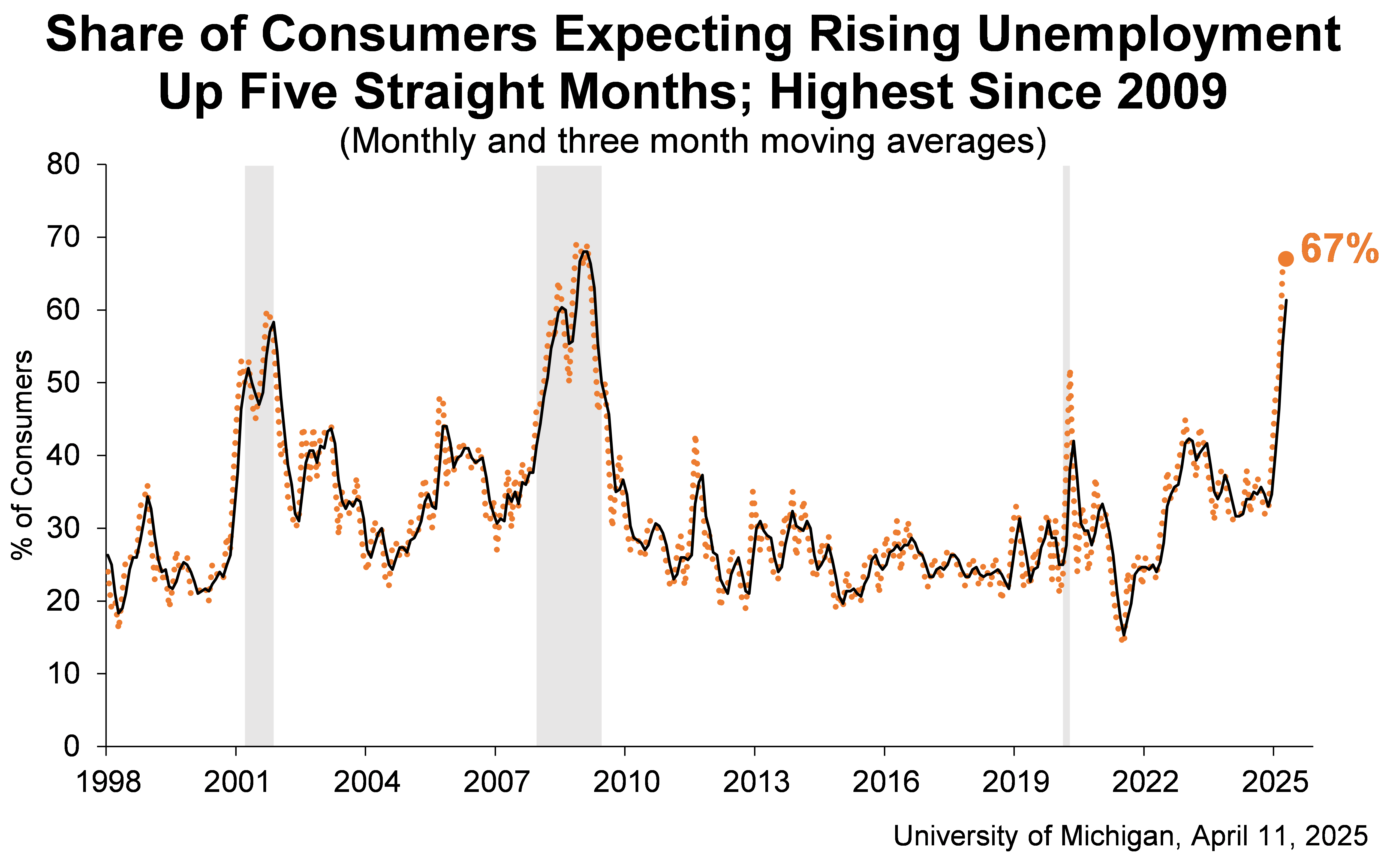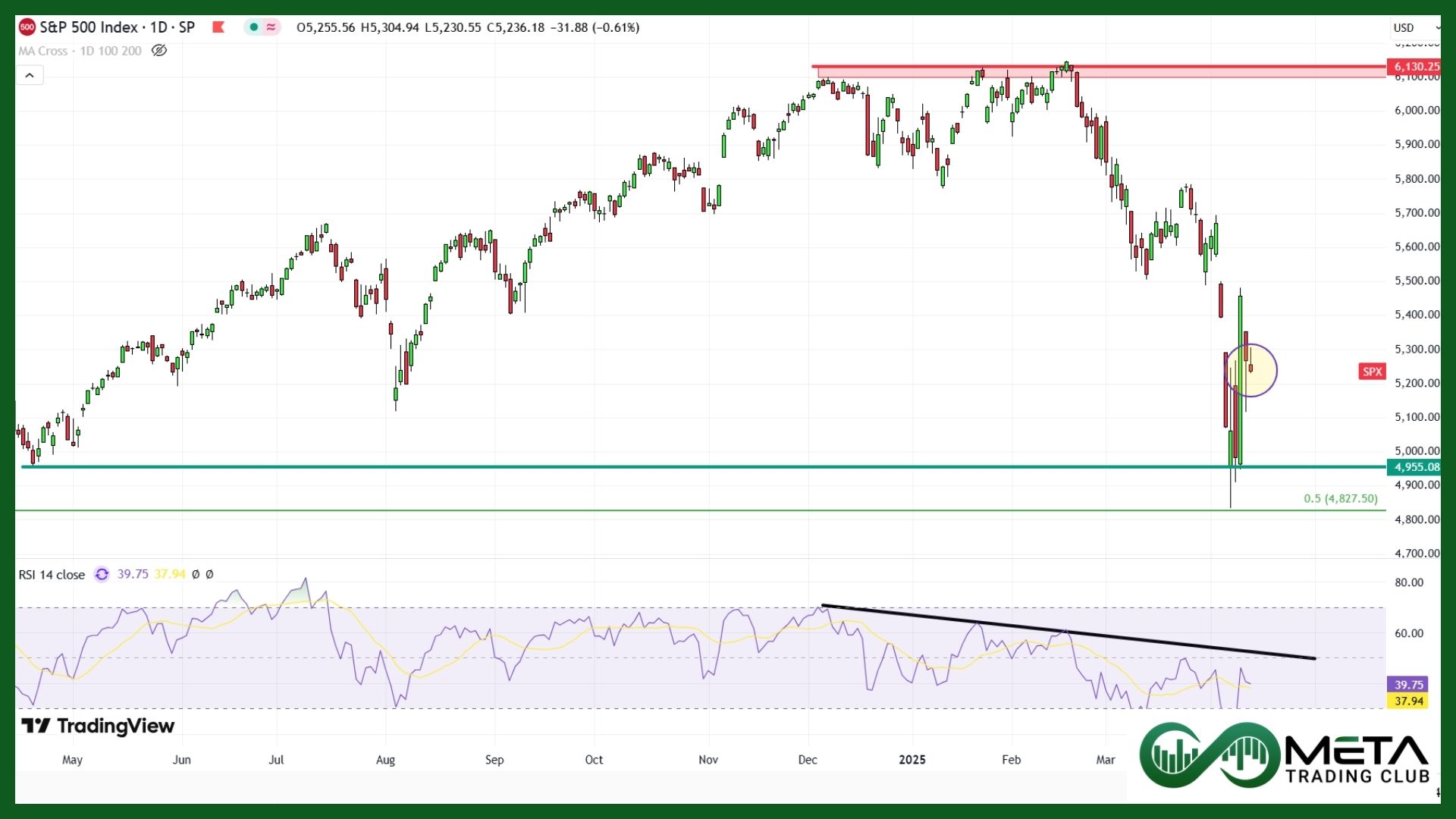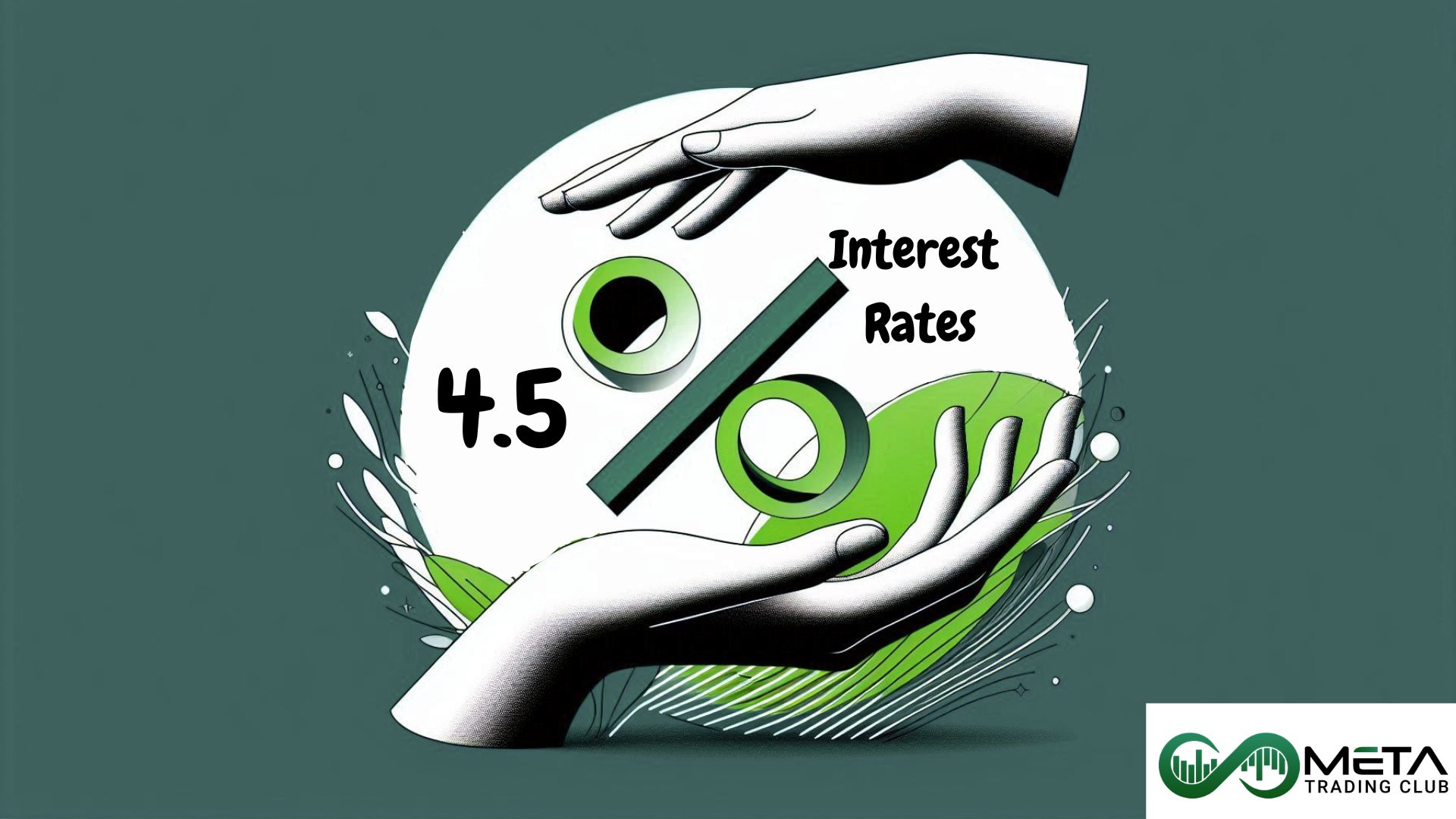The Michigan Consumer Sentiment Index (MCSI) is a monthly survey conducted by the University of Michigan that measures consumer confidence levels in the United States. The survey gathers data through telephone interviews, focusing on consumer expectations for the economy, their current financial health, and the prospects for longer-term economic growth.
Consumer sentiment is considered a valuable economic indicator as it reflects the overall health of the economy based on people’s opinions and feelings. The MCSI takes into account short-term and long-term economic expectations, providing insights into consumer spending and saving behavior
Michigan Consumer Sentiment: April 2025
Consumer sentiment dropped for the fourth consecutive month, falling 11% since March. The decline, similar to last month, was consistent across all demographics, including age, income, education, region, and political affiliation.
Sentiment has decreased by over 30% since December 2024, as concerns about trade war developments persist. Consumers have flagged several warning signs pointing to recession risks, such as worsening expectations for business conditions, personal finances, incomes, inflation, and labor markets.
Unemployment expectations have risen for the fifth straight month, reaching their highest level since 2009 and doubling November 2024 figures, contrasting the strong labor markets and spending seen in previous years.
Year-ahead inflation expectations spiked to 6.7% this month from 5% last month, marking the highest level since 1981 and continuing a trend of sharp monthly increases. Long-term inflation expectations also rose from 4.1% in March to 4.4% in April, with independents showing the largest increase. Interviews were conducted before the partial tariff reversal on April 9.
Impacts of the Report on Stock Market
Declining sentiment prompts cautious spending, slowing economic growth, and impacting businesses reliant on consumer demand.
Additionally, rising uncertainty triggers market fluctuations, particularly in sectors sensitive to consumer confidence. Furthermore, worsening outlooks for business conditions, personal finances, and labor markets increase recession risks.
Lastly, surging inflation expectations could pressure policymakers to adjust monetary policies, potentially influencing interest rates and borrowing costs.
In conclusion, this survey with declining consumer sentiment and rising inflation expectations, are likely to negatively affect the stock market. Increased uncertainty and recession fears may result in market volatility, particularly impacting sectors dependent on consumer confidence. This could further dampen investor sentiment and weigh on overall market performance.















